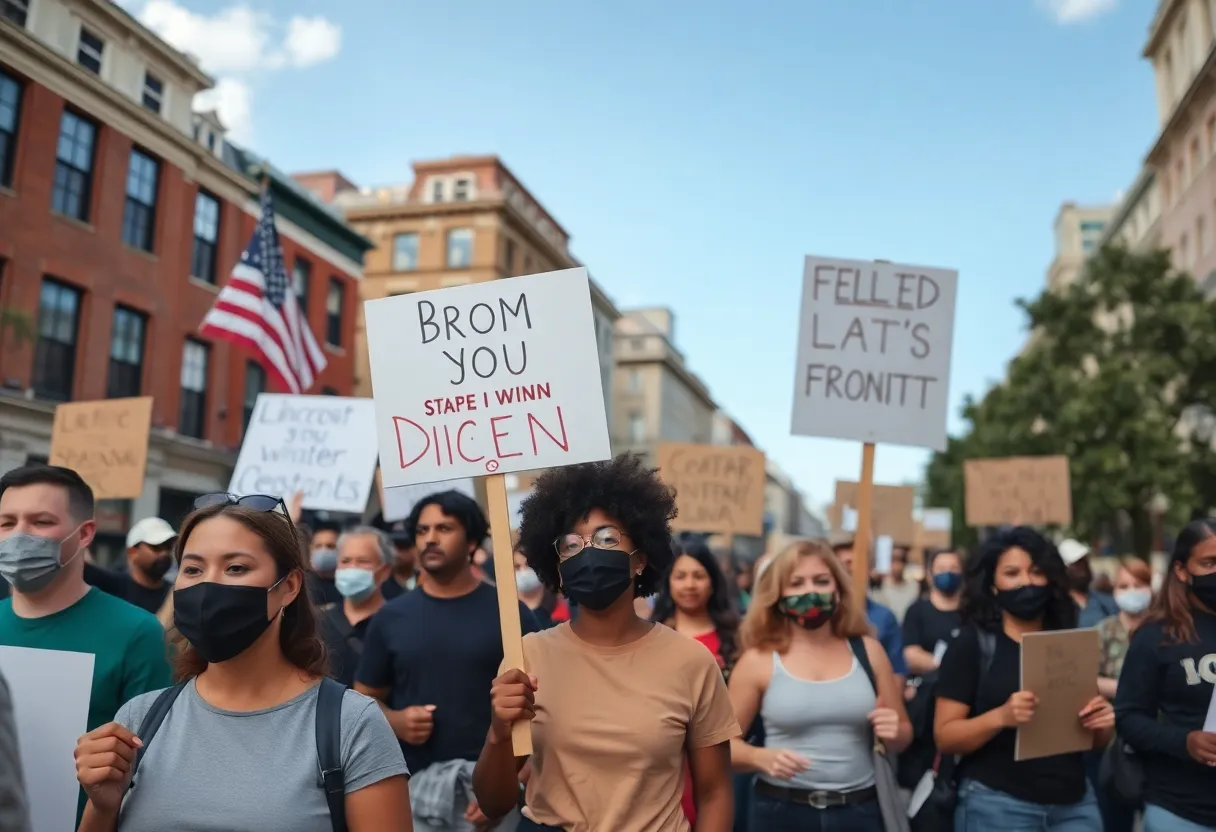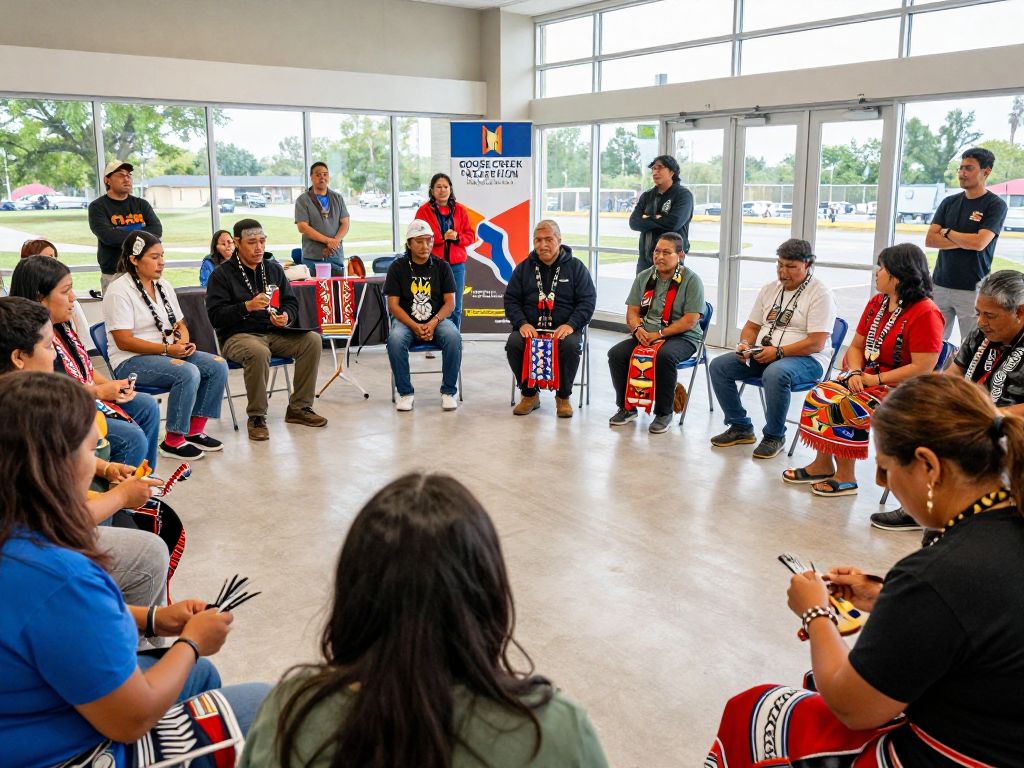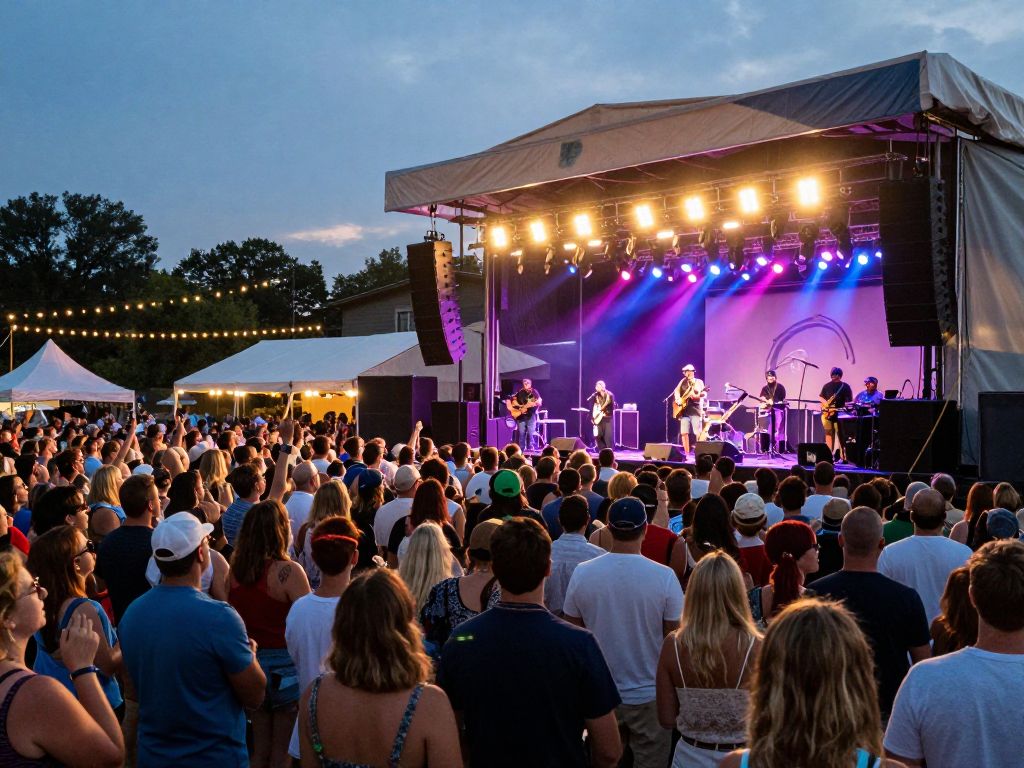News Summary
Activists in Charleston, South Carolina, are calling for changes to the city’s ‘First Amendment Demonstrations’ ordinance, which requires permits for gatherings of 25 or more. Critics argue the law infringes on constitutional rights to assemble peacefully, with recent protests bringing renewed scrutiny. While city officials defend the ordinance’s alignment with the First Amendment, community advocates express concerns over its restrictive nature during demonstrations, urging a reevaluation as tensions rise within the community.
Charleston, South Carolina – Activists in Charleston are demanding revisions to the city’s “First Amendment Demonstrations” ordinance, which regulates public gatherings and requires permits for groups of 25 or more individuals. Critics of the ordinance argue that it infringes on constitutional rights to assemble and express dissent.
The ordinance was introduced amid concerns of potential unrest following the murder of George Floyd in 2020. While city officials responded to fears of riots, Charleston largely escaped the violent protests that impacted other areas, recording few incidents and no fatalities. However, recent demonstrations, particularly those protesting former President Donald Trump, have reignited discussions about the ordinance’s fairness and necessity.
Community advocates, including former City Council member Carol Jackson, contend that the ordinance restricts citizens’ constitutional right to peacefully assemble. Many activists are urging the city council to reconsider or completely repeal the measure in light of growing tensions during demonstrations. Recent protests, especially the “No Kings” demonstration, have underscored the frustrations surrounding the ordinance, with activists stating that limiting speaker locations diminishes the visibility and impact of their causes.
City officials, including members of the police department and council, assert that the ordinance aligns with First Amendment rights and current legal guidelines. They express no intentions to amend the regulation, reinforcing their belief that it serves a necessary function in maintaining order during public assemblies. Proposals have been made for alternative protest sites, such as Brittlebank and Hampton parks, which officials argue are safer than Marion Square, a focal point for both protests and recent legal disputes over a local monument.
Activists have voiced their concerns that relocating demonstrations to less prominent areas could weaken their messages. Recently, Everyday People, a grassroots coalition, conducted a protest after their application to gather at Marion Square was rejected, emphasizing their commitment to free speech.
Current regulations under the ordinance allow exceptions for gatherings prompted by “breaking news,” though activists have criticized the vague language used within this component, suggesting it leaves room for bias and administrative abuse. Disputes over the enforcement of the ordinance escalated during recent protests, resulting in police arrests for disorderly conduct linked to the use of megaphones. Reports from activists detail aggressive tactics used by law enforcement during the protests, with some claiming officers targeted individuals displaying keffiyehs, a symbol of solidarity with Palestine.
One notable incident involved a mounted officer allegedly charging into a group of protestors, raising further questions over police conduct and the appropriateness of measures taken to maintain order. Charleston police have defended their methodologies, stating their focus is on preserving civil order and disputing allegations of violence or injuries related to their actions during the demonstrations.
The police presence at protests has drawn criticism from activists, who argue that the robust law enforcement turnout creates an intimidating atmosphere discouraging citizen participation. In response, legal representatives and organizations are preparing to challenge the constitutionality of the current ordinance in federal court, emphasizing a spirit of resistance to legislation seen as overreaching in South Carolina’s history.
As tensions rise in Charleston, the debate surrounding the “First Amendment Demonstrations” ordinance continues to evolve, reflecting broader national conversations about rights to assemble and the balance between public safety and individual liberties.
Deeper Dive: News & Info About This Topic
HERE Resources
Mass Protests Erupt in Charleston Against Trump’s Policies
Charleston Considers Juvenile Curfew for Downtown Safety
Charleston Protest Against Rep. Nancy Mace Faces Court Setback
Charleston Protests Against Mass Deportations
Additional Resources
- Charleston City Paper: Our View on Questionable Protest Ordinance
- Post and Courier: Charleston Protest First Amendment Ordinance
- ABC News 4: Charleston Police Declare Weekend of No Kings Demonstrations
- Live 5 News: Charleston Police Prepares to Enforce Nighttime Curfew for Teens
- West Virginia Watch: Charleston’s Legislation to Restrict Panhandling

Author: STAFF HERE CHARLESTON
The CHARLESTON STAFF WRITER represents the experienced team at HEREcharleston.com, your go-to source for actionable local news and information in Charleston, Charleston County, and beyond. Specializing in "news you can use," we cover essential topics like product reviews for personal and business needs, local business directories, politics, real estate trends, neighborhood insights, and state news affecting the area—with deep expertise drawn from years of dedicated reporting and strong community input, including local press releases and business updates. We deliver top reporting on high-value events such as the Spoleto Festival USA, Charleston Wine + Food Festival, and the MOJA Festival. Our coverage extends to key organizations like the Charleston Metro Chamber of Commerce and the Charleston Museum, plus leading businesses in tourism and maritime industries that power the local economy such as South Carolina Ports Authority and the Charleston Visitor Center. As part of the broader HERE network, including HEREaiken.com, HEREbeaufort.com, HEREchapin.com, HEREcharleston.com, HEREclinton.com, HEREcolumbia.com, HEREgeorgetown.com, HEREgreenwood.com, HEREgreenville.com, HEREhiltonhead.com, HEREirmo.com, HEREmyrtlebeach.com, HEREnewberry.com, HERErockhill.com, HEREspartanburg.com, HEREaustin.com, HEREcollegestation.com, HEREdallas.com, HEREhouston.com, and HEREsanantonio.com, we provide comprehensive, credible insights into South Carolina's dynamic landscape.





